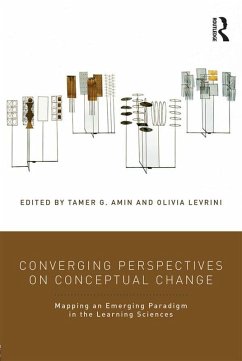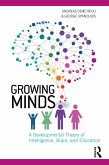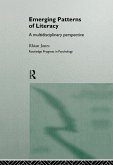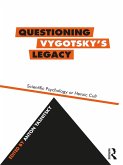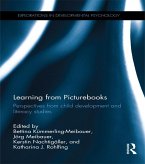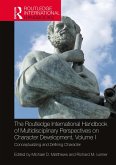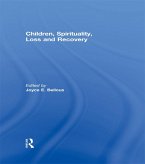Converging Perspectives on Conceptual Change (eBook, PDF)
Mapping an Emerging Paradigm in the Learning Sciences
Redaktion: Amin, Tamer G.; Levrini, Olivia
38,95 €
38,95 €
inkl. MwSt.
Sofort per Download lieferbar

19 °P sammeln
38,95 €
Als Download kaufen

38,95 €
inkl. MwSt.
Sofort per Download lieferbar

19 °P sammeln
Jetzt verschenken
Alle Infos zum eBook verschenken
38,95 €
inkl. MwSt.
Sofort per Download lieferbar
Alle Infos zum eBook verschenken

19 °P sammeln
Converging Perspectives on Conceptual Change (eBook, PDF)
Mapping an Emerging Paradigm in the Learning Sciences
Redaktion: Amin, Tamer G.; Levrini, Olivia
- Format: PDF
- Merkliste
- Auf die Merkliste
- Bewerten Bewerten
- Teilen
- Produkt teilen
- Produkterinnerung
- Produkterinnerung

Bitte loggen Sie sich zunächst in Ihr Kundenkonto ein oder registrieren Sie sich bei
bücher.de, um das eBook-Abo tolino select nutzen zu können.
Hier können Sie sich einloggen
Hier können Sie sich einloggen
Sie sind bereits eingeloggt. Klicken Sie auf 2. tolino select Abo, um fortzufahren.

Bitte loggen Sie sich zunächst in Ihr Kundenkonto ein oder registrieren Sie sich bei bücher.de, um das eBook-Abo tolino select nutzen zu können.
Leading international scholars show how distinct interdisciplinary lines of research and inquiry complement each other and converge over time raising questions for the future of conceptual change research. Areas include process, modelling and argumentation, metacognition and epistemology, language and discourse, identity and social interaction.
- Geräte: PC
- mit Kopierschutz
- eBook Hilfe
- Größe: 3.94MB
Andere Kunden interessierten sich auch für
![Growing Minds (eBook, PDF) Growing Minds (eBook, PDF)]() Andreas DemetriouGrowing Minds (eBook, PDF)38,95 €
Andreas DemetriouGrowing Minds (eBook, PDF)38,95 €![Conducting International Research and Service Collaborations (eBook, PDF) Conducting International Research and Service Collaborations (eBook, PDF)]() Robert B. McCallConducting International Research and Service Collaborations (eBook, PDF)38,95 €
Robert B. McCallConducting International Research and Service Collaborations (eBook, PDF)38,95 €![Emerging Patterns of Literacy (eBook, PDF) Emerging Patterns of Literacy (eBook, PDF)]() Rhian JonesEmerging Patterns of Literacy (eBook, PDF)51,95 €
Rhian JonesEmerging Patterns of Literacy (eBook, PDF)51,95 €![Questioning Vygotsky's Legacy (eBook, PDF) Questioning Vygotsky's Legacy (eBook, PDF)]() Questioning Vygotsky's Legacy (eBook, PDF)43,95 €
Questioning Vygotsky's Legacy (eBook, PDF)43,95 €![Learning from Picturebooks (eBook, PDF) Learning from Picturebooks (eBook, PDF)]() Learning from Picturebooks (eBook, PDF)45,95 €
Learning from Picturebooks (eBook, PDF)45,95 €![The Routledge International Handbook of Multidisciplinary Perspectives on Character Development, Volume I (eBook, PDF) The Routledge International Handbook of Multidisciplinary Perspectives on Character Development, Volume I (eBook, PDF)]() The Routledge International Handbook of Multidisciplinary Perspectives on Character Development, Volume I (eBook, PDF)45,95 €
The Routledge International Handbook of Multidisciplinary Perspectives on Character Development, Volume I (eBook, PDF)45,95 €![Children, Spirituality, Loss and Recovery (eBook, PDF) Children, Spirituality, Loss and Recovery (eBook, PDF)]() Children, Spirituality, Loss and Recovery (eBook, PDF)46,95 €
Children, Spirituality, Loss and Recovery (eBook, PDF)46,95 €-
-
-
Leading international scholars show how distinct interdisciplinary lines of research and inquiry complement each other and converge over time raising questions for the future of conceptual change research. Areas include process, modelling and argumentation, metacognition and epistemology, language and discourse, identity and social interaction.
Dieser Download kann aus rechtlichen Gründen nur mit Rechnungsadresse in A, B, BG, CY, CZ, D, DK, EW, E, FIN, F, GR, HR, H, IRL, I, LT, L, LR, M, NL, PL, P, R, S, SLO, SK ausgeliefert werden.
Produktdetails
- Produktdetails
- Verlag: Taylor & Francis eBooks
- Seitenzahl: 390
- Erscheinungstermin: 13. November 2017
- Englisch
- ISBN-13: 9781315467122
- Artikelnr.: 50212030
- Verlag: Taylor & Francis eBooks
- Seitenzahl: 390
- Erscheinungstermin: 13. November 2017
- Englisch
- ISBN-13: 9781315467122
- Artikelnr.: 50212030
- Herstellerkennzeichnung Die Herstellerinformationen sind derzeit nicht verfügbar.
Tamer G. Amin is Associate Professor in the Department of Education, and Director of the Science and Mathematics Education Center at the American University of Beirut, Lebanon. Olivia Levrini is Associate Professor in Physics Education and History of Physics at the University of Bologna, Italy.
Acknowledgements List of Contributors Introduction T. G. Amin, O. Levrini Part I: The Nature of Concepts and Conceptual Change B. Sherin Chapter 1: Knowledge in Pieces: An Evolving Framework for Understanding Knowing and Learning A. A. diSessa Chapter 2: Initial and Scientific Understandings and the Problem of Conceptual Change S. Vosniadou Chapter 3: Addressing Robust Misconceptions through the Ontological Distinction between Sequential and Emergent Processes J. B. Henderson, E. Langbeheim, M. T. H. Chi Chapter 4: Conceptual Change and the Complexity of Learning C. Lundholm Chapter 5: Conceptual Change, Relationships, and Cultural Epistemologies A. Marin, D. Medin, b ojalehto Chapter 6: Conceptual Change: A Cultural-Historical and Cognitive-Developmental Framework G. B. Saxe Part I Synthesis: Elements, Ensembles, and Dynamic Constructions B. Sherin Part II: Representation, Language and Discourse in Conceptual Change T. G. Amin Chapter 7: Conceptual Change and Symbol Use in Physics B. Sherin Chapter 8: The Language Paradox: Words Invite and Impede Conceptual Change S. A. Gelman, J. M. DeJesus Chapter 9: Gesture
s Role in Reflecting and Fostering Conceptual Change M. A. Novack, E. L. Congdon, E. M. Wakefield, S Goldin-Meadow Chapter 10: Implicit Conceptual Dynamics and Students
Explanatory Model Development in Science D. E. Brown Chapter 11: Conceptual Change, Materiality and Hybrid minds R Säljö Chapter 12: Multiple Representations and Students
Conceptual Change in Science D. F. Treagust, M. Won, F. McLure Part II Synthesis: Representation, Concepts and Concept Learning T. G. Amin Part III: Modeling, Explanation and Argumentation in Conceptual Change C. A. Chinn Chapter 13: Consolidation of Conceptual Change, Argumentation, Models and Explanations: Why it Matters for Science Education S. Erduran, E. Kaya, P. Seda Cetin Chapter 14: The Dynamic Material and Representational Practices of Modeling R. Lehrer, L. Schauble Chapter 15: Shifts in Epistemic Status in Argumentation and in Conceptual Change M. P. Jiménez-Aleixandre, P. Brocos Chapter 16: Conceptual Change through Argumentation: A Process of Dynamic Refinement L. Berland, R. Russ Chapter 17: Concept and Critique: Two Intertwined Routes for Intellectual Development in Science L. Viennot, N. Décamp Chapter 18: Evaluating Self-generated Explanations in the Process of Understanding S. Kapon Part III Synthesis: Modeling, Explanation, Argumentation, and Conceptual Change C. A. Chinn Part IV: Metacognition and Epistemology in Conceptual Change C. Smith, M. Wiser Chapter 19: Identifying the Role of Epistemic Cognition and Metacognition in Conceptual Change B. K. Hofer Chapter 20: Don
t Believe Everything You Think: Reappraising Judgments about Conceptions D. Lombardi, G. M. Sinatra Chapter 21: The Interacting Dynamics of Epistemology and Conceptual Understanding D. Hammer Chapter 22: Situating Practices of Epistemic Cognition W. A. Sandoval Chapter 23: Developing an Understanding of the Limits of Knowing F. C. Keil Part IV Synthesis: Conceptualizing the Interactions among Epistemic Thinking, Metacognition, and Content-Specific Conceptual Change C. L. Smith Part V: Identity and Conceptual Change M. Levin and O. Levrini Chapter 24: A Discursive Approach to Identity and Critical Transitions in Mathematics Learning E. Heyd-Metzuyanim Chapter 25: Identity and Knowledge A. A. diSessa Chapter 26: Personal, Deeply Affective, and Aesthetic Engagement with Science Content: When Disciplinary Learning Becomes a Vehicle for Identity Construction O. Levrini, M. Levin, P. Fantini Part V Synthesis: Unpacking the Nexus between Identity and Conceptual Change: Perspectives on an Emerging Research Agenda M. Levin, O. Levrini, J Greeno Overall Synthesis: Facing the Challenge of Programmatic Research on Conceptual Change T. G. Amin, O. Levrini
s Role in Reflecting and Fostering Conceptual Change M. A. Novack, E. L. Congdon, E. M. Wakefield, S Goldin-Meadow Chapter 10: Implicit Conceptual Dynamics and Students
Explanatory Model Development in Science D. E. Brown Chapter 11: Conceptual Change, Materiality and Hybrid minds R Säljö Chapter 12: Multiple Representations and Students
Conceptual Change in Science D. F. Treagust, M. Won, F. McLure Part II Synthesis: Representation, Concepts and Concept Learning T. G. Amin Part III: Modeling, Explanation and Argumentation in Conceptual Change C. A. Chinn Chapter 13: Consolidation of Conceptual Change, Argumentation, Models and Explanations: Why it Matters for Science Education S. Erduran, E. Kaya, P. Seda Cetin Chapter 14: The Dynamic Material and Representational Practices of Modeling R. Lehrer, L. Schauble Chapter 15: Shifts in Epistemic Status in Argumentation and in Conceptual Change M. P. Jiménez-Aleixandre, P. Brocos Chapter 16: Conceptual Change through Argumentation: A Process of Dynamic Refinement L. Berland, R. Russ Chapter 17: Concept and Critique: Two Intertwined Routes for Intellectual Development in Science L. Viennot, N. Décamp Chapter 18: Evaluating Self-generated Explanations in the Process of Understanding S. Kapon Part III Synthesis: Modeling, Explanation, Argumentation, and Conceptual Change C. A. Chinn Part IV: Metacognition and Epistemology in Conceptual Change C. Smith, M. Wiser Chapter 19: Identifying the Role of Epistemic Cognition and Metacognition in Conceptual Change B. K. Hofer Chapter 20: Don
t Believe Everything You Think: Reappraising Judgments about Conceptions D. Lombardi, G. M. Sinatra Chapter 21: The Interacting Dynamics of Epistemology and Conceptual Understanding D. Hammer Chapter 22: Situating Practices of Epistemic Cognition W. A. Sandoval Chapter 23: Developing an Understanding of the Limits of Knowing F. C. Keil Part IV Synthesis: Conceptualizing the Interactions among Epistemic Thinking, Metacognition, and Content-Specific Conceptual Change C. L. Smith Part V: Identity and Conceptual Change M. Levin and O. Levrini Chapter 24: A Discursive Approach to Identity and Critical Transitions in Mathematics Learning E. Heyd-Metzuyanim Chapter 25: Identity and Knowledge A. A. diSessa Chapter 26: Personal, Deeply Affective, and Aesthetic Engagement with Science Content: When Disciplinary Learning Becomes a Vehicle for Identity Construction O. Levrini, M. Levin, P. Fantini Part V Synthesis: Unpacking the Nexus between Identity and Conceptual Change: Perspectives on an Emerging Research Agenda M. Levin, O. Levrini, J Greeno Overall Synthesis: Facing the Challenge of Programmatic Research on Conceptual Change T. G. Amin, O. Levrini
Acknowledgements List of Contributors Introduction T. G. Amin, O. Levrini Part I: The Nature of Concepts and Conceptual Change B. Sherin Chapter 1: Knowledge in Pieces: An Evolving Framework for Understanding Knowing and Learning A. A. diSessa Chapter 2: Initial and Scientific Understandings and the Problem of Conceptual Change S. Vosniadou Chapter 3: Addressing Robust Misconceptions through the Ontological Distinction between Sequential and Emergent Processes J. B. Henderson, E. Langbeheim, M. T. H. Chi Chapter 4: Conceptual Change and the Complexity of Learning C. Lundholm Chapter 5: Conceptual Change, Relationships, and Cultural Epistemologies A. Marin, D. Medin, b ojalehto Chapter 6: Conceptual Change: A Cultural-Historical and Cognitive-Developmental Framework G. B. Saxe Part I Synthesis: Elements, Ensembles, and Dynamic Constructions B. Sherin Part II: Representation, Language and Discourse in Conceptual Change T. G. Amin Chapter 7: Conceptual Change and Symbol Use in Physics B. Sherin Chapter 8: The Language Paradox: Words Invite and Impede Conceptual Change S. A. Gelman, J. M. DeJesus Chapter 9: Gesture
s Role in Reflecting and Fostering Conceptual Change M. A. Novack, E. L. Congdon, E. M. Wakefield, S Goldin-Meadow Chapter 10: Implicit Conceptual Dynamics and Students
Explanatory Model Development in Science D. E. Brown Chapter 11: Conceptual Change, Materiality and Hybrid minds R Säljö Chapter 12: Multiple Representations and Students
Conceptual Change in Science D. F. Treagust, M. Won, F. McLure Part II Synthesis: Representation, Concepts and Concept Learning T. G. Amin Part III: Modeling, Explanation and Argumentation in Conceptual Change C. A. Chinn Chapter 13: Consolidation of Conceptual Change, Argumentation, Models and Explanations: Why it Matters for Science Education S. Erduran, E. Kaya, P. Seda Cetin Chapter 14: The Dynamic Material and Representational Practices of Modeling R. Lehrer, L. Schauble Chapter 15: Shifts in Epistemic Status in Argumentation and in Conceptual Change M. P. Jiménez-Aleixandre, P. Brocos Chapter 16: Conceptual Change through Argumentation: A Process of Dynamic Refinement L. Berland, R. Russ Chapter 17: Concept and Critique: Two Intertwined Routes for Intellectual Development in Science L. Viennot, N. Décamp Chapter 18: Evaluating Self-generated Explanations in the Process of Understanding S. Kapon Part III Synthesis: Modeling, Explanation, Argumentation, and Conceptual Change C. A. Chinn Part IV: Metacognition and Epistemology in Conceptual Change C. Smith, M. Wiser Chapter 19: Identifying the Role of Epistemic Cognition and Metacognition in Conceptual Change B. K. Hofer Chapter 20: Don
t Believe Everything You Think: Reappraising Judgments about Conceptions D. Lombardi, G. M. Sinatra Chapter 21: The Interacting Dynamics of Epistemology and Conceptual Understanding D. Hammer Chapter 22: Situating Practices of Epistemic Cognition W. A. Sandoval Chapter 23: Developing an Understanding of the Limits of Knowing F. C. Keil Part IV Synthesis: Conceptualizing the Interactions among Epistemic Thinking, Metacognition, and Content-Specific Conceptual Change C. L. Smith Part V: Identity and Conceptual Change M. Levin and O. Levrini Chapter 24: A Discursive Approach to Identity and Critical Transitions in Mathematics Learning E. Heyd-Metzuyanim Chapter 25: Identity and Knowledge A. A. diSessa Chapter 26: Personal, Deeply Affective, and Aesthetic Engagement with Science Content: When Disciplinary Learning Becomes a Vehicle for Identity Construction O. Levrini, M. Levin, P. Fantini Part V Synthesis: Unpacking the Nexus between Identity and Conceptual Change: Perspectives on an Emerging Research Agenda M. Levin, O. Levrini, J Greeno Overall Synthesis: Facing the Challenge of Programmatic Research on Conceptual Change T. G. Amin, O. Levrini
s Role in Reflecting and Fostering Conceptual Change M. A. Novack, E. L. Congdon, E. M. Wakefield, S Goldin-Meadow Chapter 10: Implicit Conceptual Dynamics and Students
Explanatory Model Development in Science D. E. Brown Chapter 11: Conceptual Change, Materiality and Hybrid minds R Säljö Chapter 12: Multiple Representations and Students
Conceptual Change in Science D. F. Treagust, M. Won, F. McLure Part II Synthesis: Representation, Concepts and Concept Learning T. G. Amin Part III: Modeling, Explanation and Argumentation in Conceptual Change C. A. Chinn Chapter 13: Consolidation of Conceptual Change, Argumentation, Models and Explanations: Why it Matters for Science Education S. Erduran, E. Kaya, P. Seda Cetin Chapter 14: The Dynamic Material and Representational Practices of Modeling R. Lehrer, L. Schauble Chapter 15: Shifts in Epistemic Status in Argumentation and in Conceptual Change M. P. Jiménez-Aleixandre, P. Brocos Chapter 16: Conceptual Change through Argumentation: A Process of Dynamic Refinement L. Berland, R. Russ Chapter 17: Concept and Critique: Two Intertwined Routes for Intellectual Development in Science L. Viennot, N. Décamp Chapter 18: Evaluating Self-generated Explanations in the Process of Understanding S. Kapon Part III Synthesis: Modeling, Explanation, Argumentation, and Conceptual Change C. A. Chinn Part IV: Metacognition and Epistemology in Conceptual Change C. Smith, M. Wiser Chapter 19: Identifying the Role of Epistemic Cognition and Metacognition in Conceptual Change B. K. Hofer Chapter 20: Don
t Believe Everything You Think: Reappraising Judgments about Conceptions D. Lombardi, G. M. Sinatra Chapter 21: The Interacting Dynamics of Epistemology and Conceptual Understanding D. Hammer Chapter 22: Situating Practices of Epistemic Cognition W. A. Sandoval Chapter 23: Developing an Understanding of the Limits of Knowing F. C. Keil Part IV Synthesis: Conceptualizing the Interactions among Epistemic Thinking, Metacognition, and Content-Specific Conceptual Change C. L. Smith Part V: Identity and Conceptual Change M. Levin and O. Levrini Chapter 24: A Discursive Approach to Identity and Critical Transitions in Mathematics Learning E. Heyd-Metzuyanim Chapter 25: Identity and Knowledge A. A. diSessa Chapter 26: Personal, Deeply Affective, and Aesthetic Engagement with Science Content: When Disciplinary Learning Becomes a Vehicle for Identity Construction O. Levrini, M. Levin, P. Fantini Part V Synthesis: Unpacking the Nexus between Identity and Conceptual Change: Perspectives on an Emerging Research Agenda M. Levin, O. Levrini, J Greeno Overall Synthesis: Facing the Challenge of Programmatic Research on Conceptual Change T. G. Amin, O. Levrini
